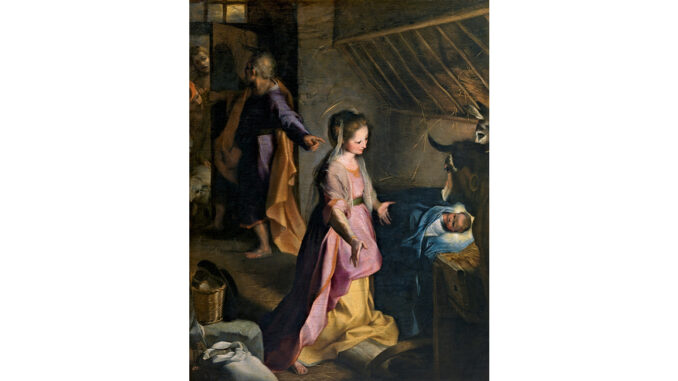
This week, we celebrated Christmas and the hope, peace, joy and love that came into this world as the result of Christ’s birth. With its timeless melody and humble narrative, “The First Noel” stands as one of our most beloved Christmas carols, inviting worshippers to contemplate the miracle of Christ’s birth through the eyes of shepherds and kings.
The carol has its roots in the oral traditions of England and was first documented in the “Hutchens manuscript” in Cornwall, England; it was published by Davies Gilbert in his 1823 collection “Some Ancient Christmas Carols.” A decade later, William Sandys included both words and music in his influential “Christmas Carols, Ancient and Modern” (1833), helping establish the carol in Victorian England’s renewed Christmas traditions.
The word “Noel”— still written as “nowell” in some hymnals — comes from Old Norman-French, which was ultimately derived from the Latin “nasci,” meaning “to be born.” Thus, it is a fitting declaration for a song celebrating Christ’s birth. Through its verses, the carol weaves together accounts from the Gospels of Luke and Matthew, beginning with the angel’s announcement to the shepherds and continuing through the journey of the Magi following the mysterious star.
“The first Nowell, the angel did say, Was to certain poor shepherds in fields as they lay…” opens the narrative, painting a picture of that extraordinary night. The recurring refrain — “Noel, Noel, Noel, Noel, Born is the King of Israel!” — serves as a joyful proclamation and an invitation to join in celebration.
The melody we sing today owes much to Sir John Stainer, who arranged the traditional tune with Sir Henry Ramsden Bramley for their collection “Christmas Carols New and Old” (1878). Music historians note the original tune was likely composed of various musical elements, a common practice in folk music of the time.
The carol gained further prominence when it was selected as the final processional hymn for the Festival of Nine Lessons and Carols at King’s College, Cambridge, in 1918. This service, broadcast worldwide since 1928, helped carry the carol’s message to countless listeners.
“The First Noel” reminds us that Christ’s birth transcends all social boundaries. Its message remains as relevant today as when it first echoed across Cornwall’s hills: good tidings of great joy, meant for all people.
Whether sung in grand cathedrals or small parish churches, this ancient carol continues to invite each new generation to join in proclaiming, “Born is the King of Israel!”



